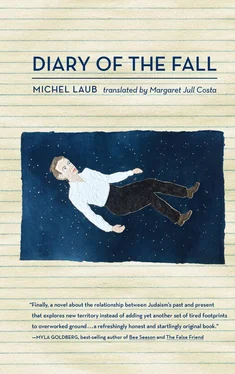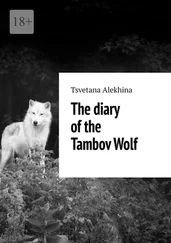A FEW MORE THINGS I KNOW ABOUT MY GRANDFATHER
1.
I found out two years ago that my father had Alzheimer’s. One day, when he was driving just a few blocks away from our house, he suddenly felt lost and couldn’t think how to get home. It was a brief, isolated episode, but when he kept forgetting small things, where his keys were, a suit he’d sent to the dry cleaner’s, often enough for my mother to notice, she helped me persuade him to seek help. I had never before taken my father to the doctor, and, as far as I knew, he went for regular checkups for blood, heart and prostate.
2.
Alzheimer’s is a disease whose mechanisms are not yet fully known, although two proteins have been linked to its appearance, tau and beta-amyloid, which are responsible for cell structure and for transporting fat to the nuclei of cells. In Alzheimer’s patients these proteins deposit fat in and around the neurones, thus suffocating them. Age is one of the risk factors, but a healthy lifestyle associated with specific intellectual activities can help postpone its initial evolution.
3.
I like talking and reading about medicine, although neurology has never been an area of particular interest to me. In recent years, I’ve had labyrinthitis, gastritis, conjunctivitis and sinusitis. I’ve also had a broken finger, sciatica, a sprained ankle, and a late case of chickenpox. As well as bouts of arrhythmia and what the doctors call presyncope, a minor heart problem for which there is little point taking any medication and whose symptoms are negligible, and for at least a year now I’ve been experiencing a recurrent cough and persistent tiredness, which could be attributed to stress, a sedentary job or alcohol abuse.
4.
I started drinking when I was fourteen, after João and I changed schools. I’d had the occasional beer with my father and the occasional glass of wine at some grownup suppers at home, but the first time I got seriously drunk was at a party just after term started. I didn’t go straight to the party, but to the house of a classmate whose parents were out and, when we left there, some of the boys were singing and talking loudly, and I climbed into the taxi clutching a plastic bottle cut in half. Someone had mixed cachaça and Coca-Cola, and you had to hold your breath every time you took a swig of it, and when I got out of the taxi, my legs felt hollow and by then everyone was laughing and it was easy enough to spend the rest of the night leaning against a wall next to a speaker. I mixed cachaça with vodka and with some cheap wine that stained your teeth purple, and by eleven o’clock I’d crawled out into the garden and found a dark corner where I sat, feeling rather weak, and where no one would find me once I’d slid helplessly to the ground, because I still didn’t really know any of my classmates.
5.
It was a while before my classmates asked if I was Jewish, because identifying surnames is something that only older people and Jews in general do, and my name doesn’t end in man or berg or any of those other telltale suffixes that would have given a clue to anyone who didn’t know where I’d studied before. In the lessons at the new school, the Holocaust was only mentioned in passing as an episode in the Second World War, and Hitler was analyzed through the historical lens of the Weimar Republic, the economic crisis of the 1930s, and the soaring inflation that obliged people to use wheelbarrows to carry their money back from the market, a story that aroused so much interest that you reached the final year of school knowing more about how quick shoppers had to be if they wanted to reach the cashier before the price of bread or milk went up again than about how prisoners were transported to the concentration camps. Not one of the teachers gave more than a cursory nod to Auschwitz. Not one of them said a word about If This Is a Man . Not one of them made the obvious calculation that a fourteen-year-old like me must have had a father or a grandfather or a great-grandfather or a cousin or a friend of a friend of a friend who had escaped the gas chambers.
6.
I don’t know if my grandfather ever read If This Is a Man or if the fact of having actually lived through what Primo Levi wrote about would have made him read the book differently, whether what was a revelation to the ordinary reader, a detailed description of the whole Auschwitz experience, would have been merely a process of recognition for my grandfather, a matter of checking to see whether or not the book corresponded to reality or to the reality of his memory, and I don’t know to what extent that somewhat distanced reading would reduce the book’s impact.
7.
I don’t know how my grandfather used to react when he heard a joke about Jews, assuming anyone ever told such jokes to him, or if he, as the distracted guest at some cocktail party or supper or business meeting, was ever in a room where someone was telling them and where he might have heard a high-pitched giggle in response to the word Jew — or what his reaction would have been to knowing that this is what happened to me when I was fourteen, that this was the nickname that began to be used as soon as João mentioned our previous school with the little synagogue in the grounds and the seventh-grade students studying for their bar mitzvah, and that the nickname meant something different for me, that instead of feeling angry at an insult that ought to be confronted or indignant at the implied stereotype — the old men all in black and with vampire teeth and speaking in a foreign accent who used to appear in films and TV soaps — I preferred not to say or do anything, at least initially.
8.
It’s not difficult to explain that attitude: you just have to imagine changing schools, the passing of a few months during which someone does sit-ups and weight lifting and his voice breaks and he grows ten centimeters before he meets his new classmates, and all it takes in the first week is for one of those classmates to try and provoke João and for João to respond and for the classmate to raise his voice and for João to raise his voice too, and it’s as if we were back in the playground at the old school during the same break-time and with the same bullying classmate, except that João is taller and stronger now and knows he has little to lose apart from getting a warning or a trip to the first-aid room to have a Band-Aid applied to his head, and there I am watching João doing exactly what he should have done the year before, you only have to react once, you just have to close your eyes and launch yourself at the person provoking you and grab him by the throat or sink your teeth into him and tear a piece out of him if necessary, just once, and no one will ever again call you weak or scared or a goy or a Jewish son-of-a-bitch.
9.
Just once, and in the weeks that follow everything changes, the first party, João and me in the middle of the small group who went to the classmate’s house whose parents were away, sixty guests at the party and our small group arriving slightly late, João ten centimeters taller now and with no trace of what happened to him in the previous year, the music, the dance floor, the girls, me and the ice chest and the plastic cup and the speaker, me drinking one cup after another while João was dancing as if he’d never eaten sand, going over to one of the girls, hands on hips, as if he’d never been buried in the sand, the way he turns his head, the words he whispers in her ear, João taking the girl by the hand as if he’d never fallen flat on his back at his own birthday party in front of his father and sixty other people who would never believe what I was seeing now, while I had already gone out into the garden, already found a dark corner, was already lying beneath a tree while the world was spinning and I could feel only the damp grass and my throat and my stomach as I watched João approach with the girl and lean her against the tree before leaning against her.
Читать дальше












